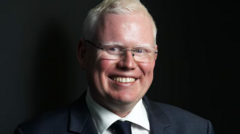In a groundbreaking move for the #MeToo movement in France, renowned actor Gérard Depardieu has been convicted of sexual assault in a Paris court. This decision has far-reaching implications, as it not only targets the actor but also calls out the entrenched culture of silence surrounding sexual violence in the French film industry. Following years of reluctance to prosecute high-profile figures, advocates believe this verdict may indicate a shift towards accountable justice.
Emmanuelle Dancourt, president of #MeTooMedia, emphasized the significance of this trial, dubbing it a "trial of impunity" that highlights the systemic nature of disregard for victims in the cultural realm. Depardieu's actions in 2022, where he groped two colleagues during the filming of "Les Volets Verts," have been met with an 18-month suspended sentence, fines totaling over €39,000, and placement on the national sex offender registry.
Although Depardieu's lawyer has announced plans to appeal, many feminists across France are celebrating this rare triumph as a turning point. The challenges faced by #MeToo since its inception in 2017 are well documented, with numerous allegations emerging yet few leading to convictions. This ruling stands as proof of changing tides, even in a society long resistant to addressing such issues.
This verdict aligns with a previous significant ruling from February, where director Christophe Ruggia was convicted for sexually assaulting actress Adèle Haenel while she was a minor. Both rulings indicate a possible transformation within France's legal and cultural approach to sexual violence. The outcome suggests a burgeoning recognition of the need for accountability and the importance of listening to survivors, offering hope for future cases in a society still grappling with its past.

















